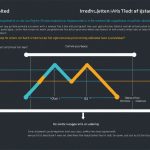Key Trends Driving Rapid Change in UK Computing
The UK computing landscape is rapidly evolving due to several key technological advancements. Among these, AI adoption stands out, enabling systems to learn and adapt, enhancing automation and decision-making processes. Coupled with this is the widespread integration of cloud computing, which offers scalable, flexible infrastructure that supports remote work and data accessibility. These technologies collectively foster agility and efficiency across UK businesses.
Additionally, data privacy UK regulations are reshaping how companies handle user information. Compliance with strict standards like GDPR ensures consumer trust but also requires significant adjustments in data management practices. Businesses must balance innovation with legal responsibilities, influencing strategic planning and operational frameworks.
Also read : A/b testing unlocked: your guide to effective optimization
Together, these trends accelerate market evolution by promoting digital transformation and encouraging investment in cutting-edge solutions. Companies embracing these changes position themselves competitively, while those slow to adapt risk obsolescence. Understanding the impact of AI, cloud, and privacy laws is crucial for any organisation aiming to thrive in today’s dynamic UK computing environment.
Key Trends Driving Rapid Change in UK Computing
Significant technological advancements such as AI adoption, cloud computing, and automation are transforming the UK computing sector at an accelerated pace. AI adoption enables machines to analyze data and perform tasks that once required human intelligence, contributing to smarter solutions across industries. Meanwhile, cloud computing is reshaping infrastructure by providing scalable, flexible, and cost-efficient platforms, allowing businesses to operate more dynamically and access computing resources on demand.
Also to see : How are UK marketers using predictive analytics to forecast consumer trends?
Regulatory shifts and heightened emphasis on data privacy UK serve as additional catalysts influencing how companies handle data and technology integration. The evolving legal landscape demands strict compliance, ensuring customer data protection while fostering innovation.
These trends collectively drive rapid market evolution by pushing firms to modernize IT architectures and rethink their strategic approaches. Embracing AI adoption and cloud technologies empowers UK businesses to improve efficiency and competitiveness but also requires careful attention to data privacy UK concerns. Adaptability to these advancements ensures sustained growth and responsiveness in an ever-changing environment.
Impact of These Trends on Marketing Strategies
The impact of technology on marketing within UK computing is profound. As AI adoption and cloud computing reshape business operations, marketing in the UK must evolve accordingly. Consumers now expect more personalised and data-driven marketing, fueled by accessible data insights made possible through these technological advancements.
A key challenge marketing teams face is managing the deluge of customer data while respecting data privacy UK rules. This tension requires marketers to balance effective targeting with compliance, reshaping campaign strategies to align with legal frameworks. Additionally, digital marketing UK experiences shifts in customer engagement, where real-time responsiveness and tailored content have become essential to capture attention.
Marketing teams confronting these challenges in UK computing trends must adopt agile practices that integrate new technologies smoothly. For example, automation tools leveraging AI can optimize campaign delivery, but teams must continuously monitor for both performance and regulatory compliance.
Understanding how AI adoption, cloud computing, and data privacy UK interact is crucial for marketers navigating this rapidly transforming environment, enabling them to meet customer expectations while overcoming unique industry hurdles.
Impact of These Trends on Marketing Strategies
The impact of technology on marketing within UK computing is profound, reshaping how brands connect with audiences. Increased AI adoption and cloud computing enable more sophisticated digital marketing UK efforts by automating data analysis and delivering personalised experiences. Customers now expect seamless, real-time engagement driven by data insights, raising the bar for marketers.
This shift creates several marketing challenges UK computing teams must navigate. The growing reliance on AI analytics demands new skills and a deeper understanding of technology’s role in shaping customer journeys. Simultaneously, integrating cloud platforms enhances campaign scalability but requires careful coordination between marketing and IT departments to leverage data effectively.
Marketing professionals must adapt strategies to embrace data-driven insights while maintaining creativity. Understanding these trends helps marketers anticipate evolving customer expectations and tailor communications accordingly. In short, the impact of technology on marketing is a catalyst for innovation but also a source of complexity that teams must manage to remain competitive in the dynamic UK computing landscape.
Key Trends Driving Rapid Change in UK Computing
The UK computing trends are primarily driven by technological advancements such as AI adoption, cloud computing, and automation, each reshaping industry dynamics. AI adoption empowers systems to process complex data patterns, resulting in smarter applications that enhance efficiency and innovation. Cloud computing supplies scalable infrastructure, enabling businesses to swiftly adjust resources in response to fluctuating demands while supporting remote operations.
Regulatory developments in data privacy UK, especially post-GDPR, impose stringent standards that businesses must adhere to when managing user data. This regulatory climate influences operational decisions, making privacy a core consideration alongside technology deployment.
Together, these forces accelerate market evolution by fostering digital transformation. Companies leveraging AI adoption and cloud computing gain competitive advantages but must integrate data privacy UK principles carefully to maintain compliance. This interconnectedness requires organisations to innovate while safeguarding privacy, establishing a foundation for sustained growth in the UK computing landscape.
Key Trends Driving Rapid Change in UK Computing
Technological advancements like AI adoption, cloud computing, and automation are the primary forces reshaping UK computing trends. AI adoption enables systems to process complex data patterns, powering smarter applications that enhance operational efficiency. Meanwhile, cloud computing provides scalable infrastructure, allowing businesses to quickly deploy resources and respond to market demands. Automation further streamlines workflows, reducing manual intervention and accelerating task completion.
Data privacy UK regulations significantly influence these trends by imposing stricter controls on how organisations manage and protect sensitive information. Compliance with laws like GDPR requires integrating privacy considerations early in technology adoption, affecting business models and operational tactics. This regulatory environment ensures customer data is handled ethically while enabling companies to innovate responsibly.
Together, these factors accelerate market evolution in the UK by fostering agile responses to technology shifts and consumer expectations. Companies actively embracing AI adoption and cloud computing while prioritising data privacy UK position themselves advantageously for sustained growth amid the sector’s rapid transformation.
Key Trends Driving Rapid Change in UK Computing
The landscape of UK computing trends is rapidly shaped by critical technological advancements such as AI adoption, cloud computing, and automation. AI adoption enhances decision-making through advanced data analytics and pattern recognition, powering smarter applications across industries. Complementing this, cloud computing provides the scalable and flexible infrastructure necessary to support these AI-driven tools, enabling businesses to adapt resources quickly while managing costs effectively.
Meanwhile, data privacy UK regulations continue to evolve, substantially influencing how organisations approach technology deployment. Legal frameworks like GDPR demand strict compliance, requiring companies to embed privacy-by-design principles in their computing strategies. This regulatory environment not only safeguards user data but also significantly impacts operational policies and innovation pacing.
Together, these forces accelerate market evolution by driving digital transformation and encouraging UK companies to reconfigure IT frameworks proactively. Balancing the opportunities of AI adoption and cloud computing with stringent data privacy UK requirements remains crucial. Consequently, businesses that integrate these trends effectively position themselves to thrive in a competitive and fast-changing UK computing market.
Key Trends Driving Rapid Change in UK Computing
The UK computing trends revolve around rapid AI adoption, cloud computing, and automation, which collectively transform business operations. AI adoption enables more efficient data processing and intelligent decision-making, powering innovations that improve performance and customer experience. Meanwhile, cloud computing offers scalable, flexible infrastructure that supports remote workflows and accelerates deployment of new applications.
Regulatory factors such as data privacy UK laws, especially GDPR, impose crucial standards on how organisations collect, store, and use data. These regulations require businesses to embed privacy safeguards in technology rollouts, influencing strategic directions and operational practices. Compliance is not just a legal necessity but a competitive differentiator that builds consumer trust.
Together, these technological advancements drive market evolution by promoting agile, data-centric models that respond rapidly to changing demands. UK companies benefit by integrating AI and cloud services while navigating privacy challenges, enabling innovation without compromising ethical standards. This synergy positions firms to lead in a fast-paced digital economy.
Key Trends Driving Rapid Change in UK Computing
UK computing trends are defined by rapid advances in AI adoption, cloud computing, and automation, each reshaping industry capabilities. AI adoption empowers systems to analyse vast datasets, enabling predictive insights and smarter decision-making. This technology supports more efficient operations and fuels innovative services across sectors. Meanwhile, cloud computing provides flexible, scalable infrastructure essential for hosting AI applications and managing data securely. Its on-demand nature allows businesses to dynamically adjust IT resources without heavy upfront investments.
Simultaneously, evolving data privacy UK regulations play a critical role in shaping how companies implement these technologies. Laws such as GDPR impose strict controls to protect personal data, requiring businesses to build privacy into technology design and management. Compliance challenges businesses to innovate responsibly, balancing agility with legal obligations.
Together, these forces accelerate the UK’s market evolution by compelling firms to adopt digital transformation. Organisations integrating AI adoption with cloud computing, all while respecting data privacy UK requirements, gain competitive advantages and sustain growth in this fast-changing environment.






